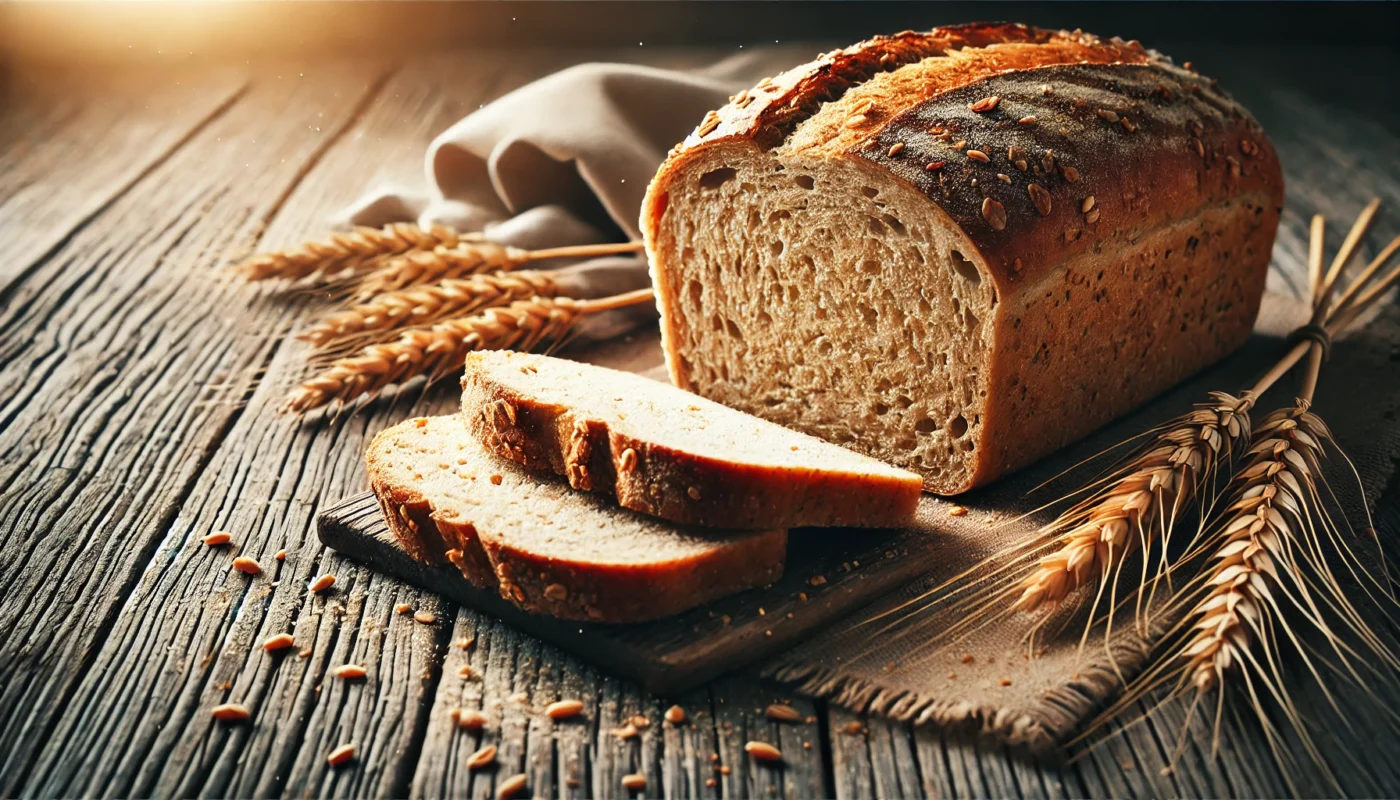When it comes to maintaining joint health, dietary choices often spark considerable debate. One such topic is the role of tomatoes in joint wellness. Are tomatoes good for arthritis, or is tomato consumption bad for joints and bones? In this article, we will delve into the intricacies of tomato consumption and its impact on joint health, providing a comprehensive overview that is both informative and practical for those eager to optimize their well-being.
Tag Archives: dietary choices
Inflammation is a natural response of our bodies. It’s a defense mechanism against injury, infection, or disease. But when it becomes chronic, it can lead to serious health issues.
This is where diet comes into play. Certain foods and beverages can help manage inflammation. They contain compounds that have anti-inflammatory properties.
Among these, beverages are a convenient and enjoyable option. They can be easily incorporated into our daily routines. But not all beverages are created equal.
Some are packed with sugar and artificial additives. These can actually increase inflammation. So, it’s crucial to make informed choices.
In this article, we’ll explore the top five anti-inflammatory beverages. These drinks are not only delicious but also packed with health benefits. They can help you combat inflammation naturally.
We’ll delve into the science behind these beverages. We’ll also provide practical tips on how to prepare and consume them.
Arthritis is a common health concern that affects millions worldwide. It’s a leading cause of disability, causing pain and stiffness in the joints.
But did you know that your diet can play a significant role in managing arthritis symptoms? Certain foods can trigger inflammation, a key factor in arthritis pain and progression.
In this comprehensive guide, we’ll delve into the five worst foods for arthritis. These are foods that can exacerbate your symptoms and make your condition worse.
We’ll explain why these foods are harmful and how they affect your body. We’ll also provide practical dietary advice to help you manage your arthritis more effectively.
But it’s not all about what you shouldn’t eat. We’ll also discuss foods that can help alleviate joint pain and stiffness. These are foods that can support your overall joint health and improve your wellbeing.
Whether you’re a fitness enthusiast, a health enthusiast, or a medical patient dealing with arthritis, this guide is for you. It’s designed to help you understand the scientific research behind diet and arthritis, and how to apply this knowledge in a practical way.
So, let’s get started. Let’s empower you to manage your arthritis through informed dietary choices.
Gut inflammation is a common health concern. It can cause discomfort, disrupt your daily life, and even lead to serious health issues.
Understanding the role of vitamins in managing gut inflammation can be a game-changer. It can help you take control of your health and improve your quality of life.
This article aims to shed light on the essential vitamins that can help combat gut inflammation. We will delve into the science behind these vitamins, their benefits, and how to incorporate them into your diet.
We will also explore other supplements that can support gut health and reduce inflammation. These include probiotics, prebiotics, and certain minerals and herbal supplements.
In addition, we will provide practical tips on how to choose high-quality supplements. We will also discuss the importance of personalized nutrition and lifestyle factors that can influence gut health.
Whether you’re a fitness enthusiast, a health enthusiast, or a medical patient, this article is designed to provide you with comprehensive and practical information.
Our goal is to empower you to make informed decisions about your health. Let’s embark on this journey towards improved gut health and overall wellbeing.
In recent years, there has been a growing interest in natural remedies for managing health conditions, including inflammation. People are increasingly seeking alternatives to pharmaceutical solutions, driven by a desire for holistic health approaches. This has led to a surge in research and discussion about foods with potential health benefits, such as peppers.
Inflammation is a common concern. It’s a natural response of the body to injury or illness. But when it becomes chronic, it can lead to serious health issues.
Enter antioxidants. These compounds are often touted as a solution to combat inflammation. But do they really work?
This article aims to answer that question. We’ll delve into the science behind antioxidants and inflammation. We’ll explore how these compounds function in the body and their potential benefits.
We’ll also look at dietary sources of antioxidants. Fruits, vegetables, nuts, and seeds are all rich in these compounds. Blueberries, in particular, are often highlighted for their anti-inflammatory properties.
But it’s not just about what you eat. The body also produces its own antioxidants. Understanding the balance between these internal and external sources is key.
We’ll also examine the research. What does the science say about antioxidants and inflammation? Are they really the magic bullet they’re often made out to be?
The role of antioxidants in chronic diseases will also be discussed. Conditions like arthritis, heart disease, and even cancer have been linked to inflammation. Can antioxidants help manage these conditions?
Supplementation is another important topic. While getting antioxidants from food is ideal, some people turn to supplements. But are they as effective?
Finally, we’ll provide practical tips. Whether you’re a fitness enthusiast, a health enthusiast, or a medical patient, you’ll find strategies to incorporate antioxidants into your lifestyle.
This article is your comprehensive guide to understanding antioxidants and inflammation. It’s backed by scientific research and practical advice.
So, do antioxidants really combat inflammation effectively? Let’s find out.
Inflammation is a hot topic in health circles. It’s a natural response of the body, but when it becomes chronic, it can lead to serious health issues.
Diet plays a crucial role in managing inflammation. Certain foods can either trigger or reduce inflammation.
Butter, a common dietary fat, is often questioned for its impact on inflammation. Is it a friend or foe?
This article aims to shed light on this topic. We’ll delve into the science behind butter and inflammation, providing a comprehensive understanding of this complex relationship.
We’ll explore the nutritional profile of butter, its fatty acid composition, and how these factors might influence inflammation. We’ll also examine the latest research on this subject.
For those seeking practical advice, we’ll provide strategies for incorporating healthy fats into your diet. We’ll also discuss alternatives to butter for those looking to reduce inflammation.
Our goal is to empower you with knowledge and practical strategies. By understanding the impact of dietary choices on inflammation, you can make informed decisions for your health and wellbeing.
Join us as we unravel the impact of butter on inflammation.
Artificial sweeteners are a common part of our diets. They’re in everything from diet sodas to sugar-free desserts. But have you ever wondered about their impact on your health? Specifically, could they be causing your joint discomfort?
Joint pain is a common ailment. It can be caused by a variety of factors, from arthritis to injury. But could your diet be contributing to the problem? This is a question that many health enthusiasts, fitness buffs, and medical patients are asking.
Aspartame is one of the most common artificial sweeteners. It’s used in many low-calorie and sugar-free foods. But there’s been controversy over its safety since it was first approved.
Some people report joint pain after consuming aspartame. But is there a scientific basis for this? Or is it just anecdotal evidence? This article aims to delve into the research and provide a comprehensive understanding of the issue.
We’ll explore the potential link between aspartame and inflammation. We’ll also look at other artificial sweeteners and their possible effects on joint health. Our goal is to provide you with the information you need to make informed decisions about your diet.
Whether you’re a fitness enthusiast, a health enthusiast, or a medical patient, this article is for you. We’ll provide practical, in-depth, and detailed advice about how to optimize your health and fitness. Let’s dive in and explore the question: Do artificial sweeteners cause joint discomfort?
When it comes to breakfast staples, turkey bacon often appears as a healthier alternative to traditional pork bacon. However, as health-conscious individuals scrutinize their dietary choices, the question arises: Is turkey bacon inflammatory? In this comprehensive analysis, we delve into the nuances of turkey bacon and its potential inflammatory effects, providing expert insights for fitness enthusiasts, health enthusiasts, and those managing medical conditions.
Inflammation is a natural response of our bodies. It’s a defense mechanism against harmful stimuli, like pathogens or injuries.
However, when inflammation becomes chronic, it can lead to various health issues. These range from heart disease to autoimmune disorders.
One factor that may influence inflammation is our diet. Specifically, the consumption of wheat has been a topic of interest.
Wheat is a staple in many diets worldwide. It’s found in bread, pasta, and numerous processed foods. But is wheat inflammatory? Does it contribute to inflammation in our bodies?
This article aims to answer these questions. We’ll delve into the scientific research surrounding wheat and inflammation.
We’ll explore the components of wheat that could potentially trigger inflammatory responses. We’ll also discuss the difference between whole and refined wheat, and their respective impacts on health.
Finally, we’ll provide practical strategies for those sensitive to wheat. These will help manage inflammation and optimize overall wellbeing.
Whether you’re a fitness enthusiast, a health enthusiast, or a medical patient, this comprehensive guide will help you understand the complex relationship between wheat consumption and inflammation.










